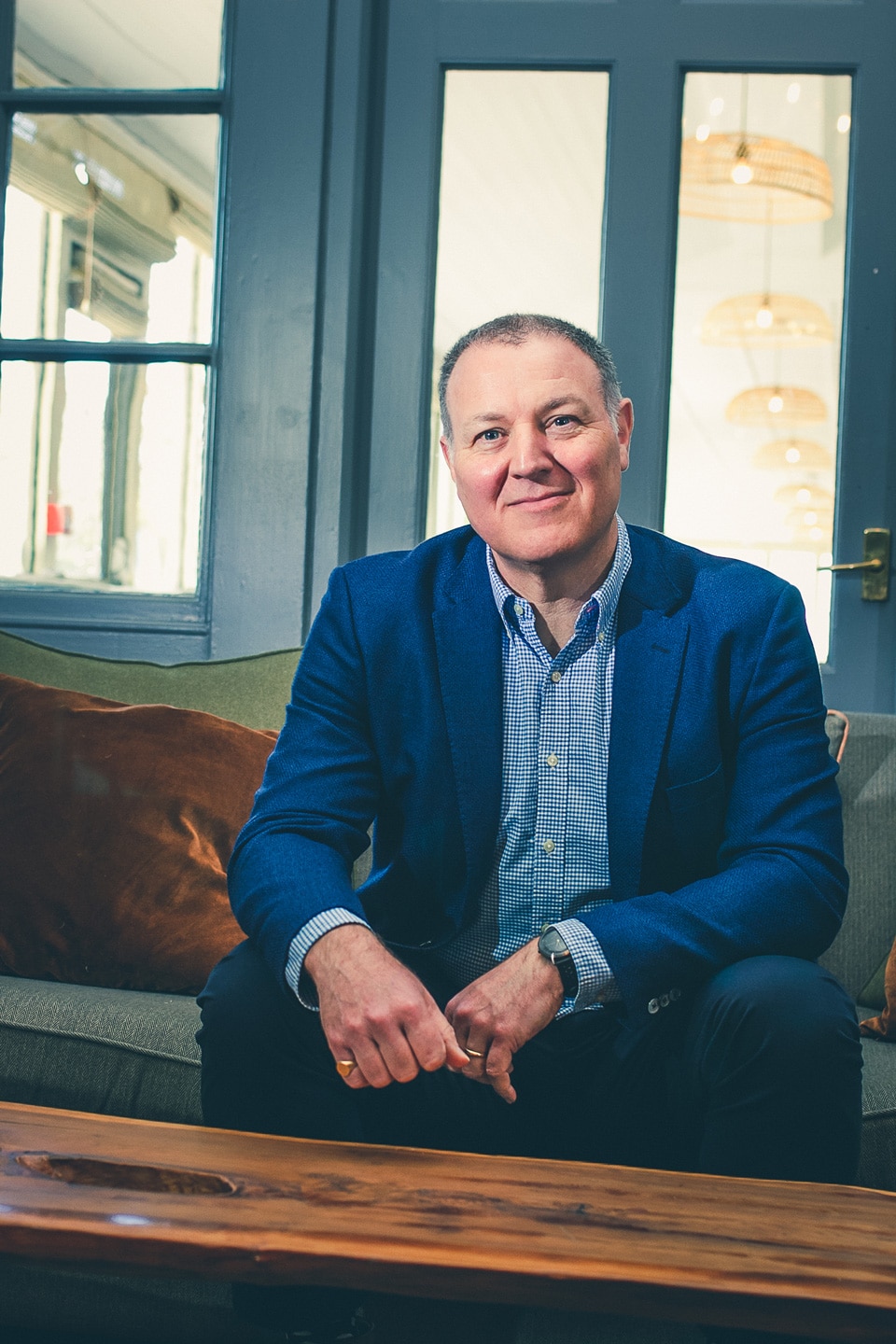The Dangers of Workism: Why So Many Leaders Are Struggling with Overwhelm, Burnout, and Even Alcoholism—and What to Do About It

“I was almost self-medicating myself with alcohol. I’d work all day, then open a bottle of wine at 4:35 PM. By 6:30 PM, I’d finished the first bottle and opened another. I wasn’t going to sleep naturally; I was drinking to the point of blacking out and trying to operate normally the next day, often having daily panic attacks.”
This confession is just one of many stories shared with me by leaders who find themselves deep in their emotional overdraft. It’s a stark reminder of the dangers of workism. As a leadership coach and researcher, I have seen up close the detrimental impact of unhealthy work habits on founders and CEOs.
A study by Harvard Business School professors Michael E. Porter and Nitin Nohria, published in the Harvard Business Review, found that CEOs work an average of 62.5 hours a week, with 79% working on weekends and 70% working during their vacations.
Understanding Emotional Overdraft
Emotional overdraft occurs when leaders subsidise their business success at the cost of their own physical or mental wellbeing. This relentless drive to achieve often leads to stress, overwhelm, and burnout. The pressure to perform, coupled with the myths surrounding leadership, can push leaders into unhealthy work patterns that not only affect them but also their teams, families and friendships.
The currency of an emotional overdraft is resilience. The longer and deeper you are overdrawn, the less resilient you become. What if you could see that invisible line in your P&L statement, one that represents the personal price you paid when you took on the client work yourself, skipped numerous dinners with friends or missed the school sports day because you ‘had to finish something’. Imagine if it were possible to put a number on that cost, just like you can with your marketing costs or travel expenses. Would your company still be in profit, or would you be staring at a big, fat loss?
The Myths of Leadership that Fuel Workism
Several pervasive myths contribute to the rise of workism among leaders:
- Leadership is inherently stressful: Many believe that running a business is supposed to be hard and stressful. Yet, successful leaders can run their businesses without constantly being in a state of stress and exhaustion.
- Success requires 24/7 hustle: The notion that perpetual busyness is a badge of honour is misleading. It leads to sacrificing personal time, health, and relationships.
- Leaders must do everything themselves: This belief stems from a lack of trust in others and a need to control every aspect of the business. Effective delegation is key to sustainable success.
- Empathy at all costs: While empathy is crucial, it should not come at the expense of one’s own wellbeing. Leaders must set boundaries to maintain their health.
- Avoid showing weakness: The best leaders understand that vulnerability is a strength, not a weakness. It fosters a culture of trust and openness.
Recognising the Signs of Workism
Workaholism can manifest in various ways. Here are some common signs:
- Punishing work hours: Consistently working late into the evening and on weekends.
- Inability to switch off: Struggling to relax or stop thinking about work during off-hours, leading to anxiety and sleepless nights.
- Deteriorating personal life: Strained relationships, neglected hobbies, and waning friendships.
- Constant stress: Experiencing chronic stress, fatigue, and burnout.
- Feeling guilty for taking breaks: Feeling anxious or guilty when taking time off from work.
Restoring Balance
Achieving a balance between mental and physical health and work success requires self-awareness and behavioural changes. Here are five ways to tackle workism:
- Become Aware of Your Emotional Overdraft
Recognise when you are dipping into your emotional overdraft. Identify the behaviours that contribute to this state and make small, manageable changes. Awareness is the first step towards change. - Identify What Drives Your Workaholism
There are ten drivers of emotional overdraft: trust, urgency, expectation, duty, JFDI (Just Flipping Do It), cost, at a loss, load balancing, empathy, and self-worth. Understanding these drivers can help you address the root causes of your overwork. You can take the free emotional overdraft assessment to find out where you score most highly. - Understand and Change Your Habits
Most behaviours are habitual. By identifying and understanding these habits, you can start to change them. For example, if trust is your key driver, which shows up as ‘I don’t trust others’, ‘I only trust myself’, then learn to delegate and trust your team to handle tasks. - Value Your Health
Recognise the importance of resilience. Prioritise sleep, rest, and play as essential components of your wellbeing. Treat them as enablers of productivity, not as obstacles. - Reject the Myth That It’s Supposed to Be Hard
Challenge the belief that leadership must be a constant struggle. Learn to work smarter, not harder. Delegate, improve processes, and seek help when needed. Many successful leaders manage to maintain a healthy work-life balance.
Here are some practical steps to implement these changes and reduce your emotional overdraft:
- Create a Support Network
Build a personal board consisting of a coach, a mentor, a peer, and a cheerleader who can provide guidance, support, and accountability. - Track Your Emotional Overdraft
Regularly track and measure your emotional overdraft to identify patterns and make necessary adjustments. This can help you stay on track and maintain a healthier work-life balance. - Use the 20%
Exercise Use the “20% of Your Time” exercise to focus on high-impact activities that drive your organisation forward. Eliminate or delegate tasks that do not require your expertise.
Most leaders spend their time a little like this:
- 20% on tasks only they can do: Core leadership responsibilities and strategic decisions.
- 20% on skilled tasks: Tasks that others could do with the right experience.
- 20% on complex, non-specialist tasks: Work that is complex but doesn’t require your specific expertise.
- 20% on routine tasks: Work that takes some ability but could be handled by many team members.
- 20% on mundane tasks: Work that anyone could do but that you pick up anyway.
Eliminating the final 20% frees up time to focus on tasks only you can do. This exercise doubles the percentage of time spent on high-impact activities, enhancing your impact.
- Set Boundaries
Establish clear boundaries to protect your personal time and health. This includes saying no to unnecessary commitments and prioritising your wellbeing. - Listen to Feedback
Seek feedback from those close to you about how your work habits affect them. This can provide valuable insights and motivate you to make positive changes.
I’m passionate about the fact that CEOs and leaders need to consciously prioritise their mental health. It’s essential they create to recharge and recover. Taking time for activities like walking, being with loved ones or contributing to your community should be seen as vital for injecting positivity back into your life.
As a business leader, it’s hard to switch off, and you might still think about work during these moments. However, you must make a conscious effort to disconnect and to do that it’s essential that you understand what is driving your workism. Set boundaries, such as checking out on weekends or after 5:30 PM, and discipline yourself not to look at your phone or get involved in work matters. Prioritising this time is crucial for maintaining resilience and overall wellbeing.
Written by Andy Brown.
Have you read?
Best Fashion Schools. Best Universities. Best Medical Schools. Best International High Schools. Countries: Most Female Billionaires.
Bring the best of the CEOWORLD magazine's global journalism to audiences in the United States and around the world. - Add CEOWORLD magazine to your Google News feed.
Follow CEOWORLD magazine headlines on: Google News, LinkedIn, Twitter, and Facebook.
Copyright 2025 The CEOWORLD magazine. All rights reserved. This material (and any extract from it) must not be copied, redistributed or placed on any website, without CEOWORLD magazine' prior written consent. For media queries, please contact: info@ceoworld.biz








